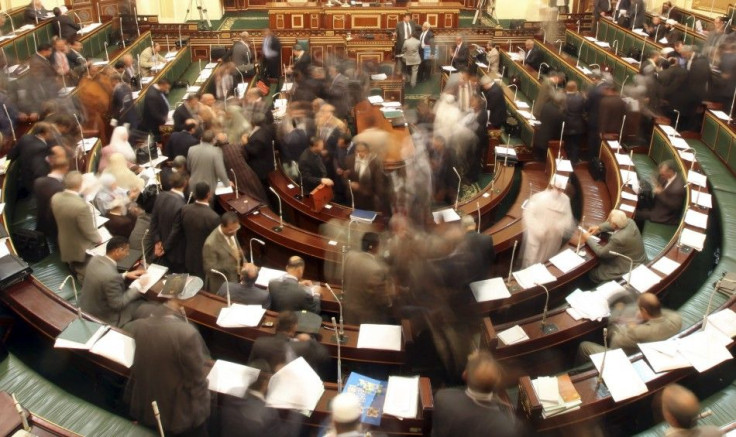Egyptian Court Dissolves One-Third Of Parliament, Paving Way For Mubarak Official To Run

UPDATE: The Thursday ruling from the High Constitutional Court means that all of the People's Assembly, the lower house of parliament, will be dissolved, according to Al Arabiya. In its stead, the ruling Supreme Council of the Armed Forces will run the country until parliamentary elections can be repeated.
The ruling regarding parliament includes the dissolution of the lower house of parliament in its entirety because the law upon which the elections were held is contrary to rules of the constitution, Farouk Sultan, the head of the constitutional court, told Reuters.
June 14, 9:50 a.m.: Egypt's High Constitutional Court ruled that the election of one-third of Egypt's parliament was unconstitutional, which could effectively disband the legislative body while it's still in its infancy, the Al Ahram newspaper reported on Thursday.
The ruling also saw one-third of Parliament voided as the elections law allowed political party candidates to contest seats reserved for individual, nonpartisan candidates, thus violating the constitutional principle of equal opportunity, the Egyptian daily reported.
The court also ruled that the Political Disenfranchisement Law was unconstitutional, which means that Hosni Mubarak's former prime minister, Ahmed Shafiq, will be allowed to run in the presidential runoff election this weekend against the Muslim Brotherhood Party's Mohammed Mursi.
Reports vary as to how much of the upper and lower houses of parliament will be dissolved, but the courts decision is nonetheless being considered a serious blow to Egypt's budding democracy. The ruling also puts the constitutional drafting process in jeopardy.
© Copyright IBTimes 2025. All rights reserved.





















